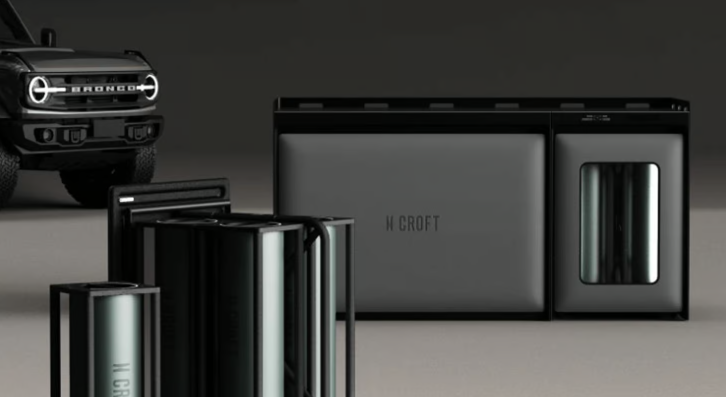
Croft and Layer are teaming up to retrofit vehicles to run on hydrogen, initially targeting larger vehicles with little fast-charging infrastructure such as heavy duty trucks.
The Croft system comprises Nanocartridges that can be used to power retrofitted vehicles using hydrogen, a Nanoplant to recharge the Nanocartridges, and a hose module for on-board charging.
Layer is a design studio working across strategy, industrial design, engineering, branding and digital sectors. Its industrial design and engineering teams specialise in physical and functional prototyping and 3D CAD development.
Layer Founder Benjamin Hubert said, “Croft is on a mission to retrofit vehicles to run on hydrogen, making them cleaner, more efficient, and capable of undertaking epic journeys – and Layer designed, engineered and branded the at-home charging system and capsules. These products all celebrate endurance, with a robust visual language that clearly invites users to service rather than replace.”
The commercialisation of fuel cell trucks is still in its infancy. Progress in technology, infrastructure, strategy, and costs are still required before commercial-scale deployment of fuel cell trucks can be achieved.
The cost of hydrogen at pump, which varies based on production and distribution methods, will be pivotal for the uptake of fuel cell trucks, as will realising cost-effective vehicle ownership.
Hydrogen may be the harbinger of a new green industrial revolution, or just the progression from one fossil fuel-based energy carrier to another with greater emphasis on reducing emissions.
Either way, hydrogen will be a factor in future long-distance freight hauling in combination with battery electric vehicles for shorter range operations, according to a recent North American Council for Freight Efficiency (NACFE) report.
“As we move to the zero-emissions freight future, in the long run, there are only two choices of power – battery electric and hydrogen fuel cell,” said Rick Mihelic, report author and director of emerging technologies, NACFE.
Hydrogen and battery electric are not an ‘either/or’ but an ‘and’ for the zero-emission freight future, and hydrogen fuel cell tractors are the only zero-emission solution for many duty cycles for heavy-duty tractors.
Alternative fuels like RNG, renewable diesel, and hydrogen used in internal combustion engines will be required to support the transition in the next two decades to help make progress toward zero-emission goals, while in parallel ramping up the hydrogen and battery electric infrastructure and manufacturing base, according to NACFE.
Industry agreement is needed on whether hydrogen long-haul fuel cell tractors and the transport of the hydrogen fuel itself, will be based on gaseous or liquid hydrogen.